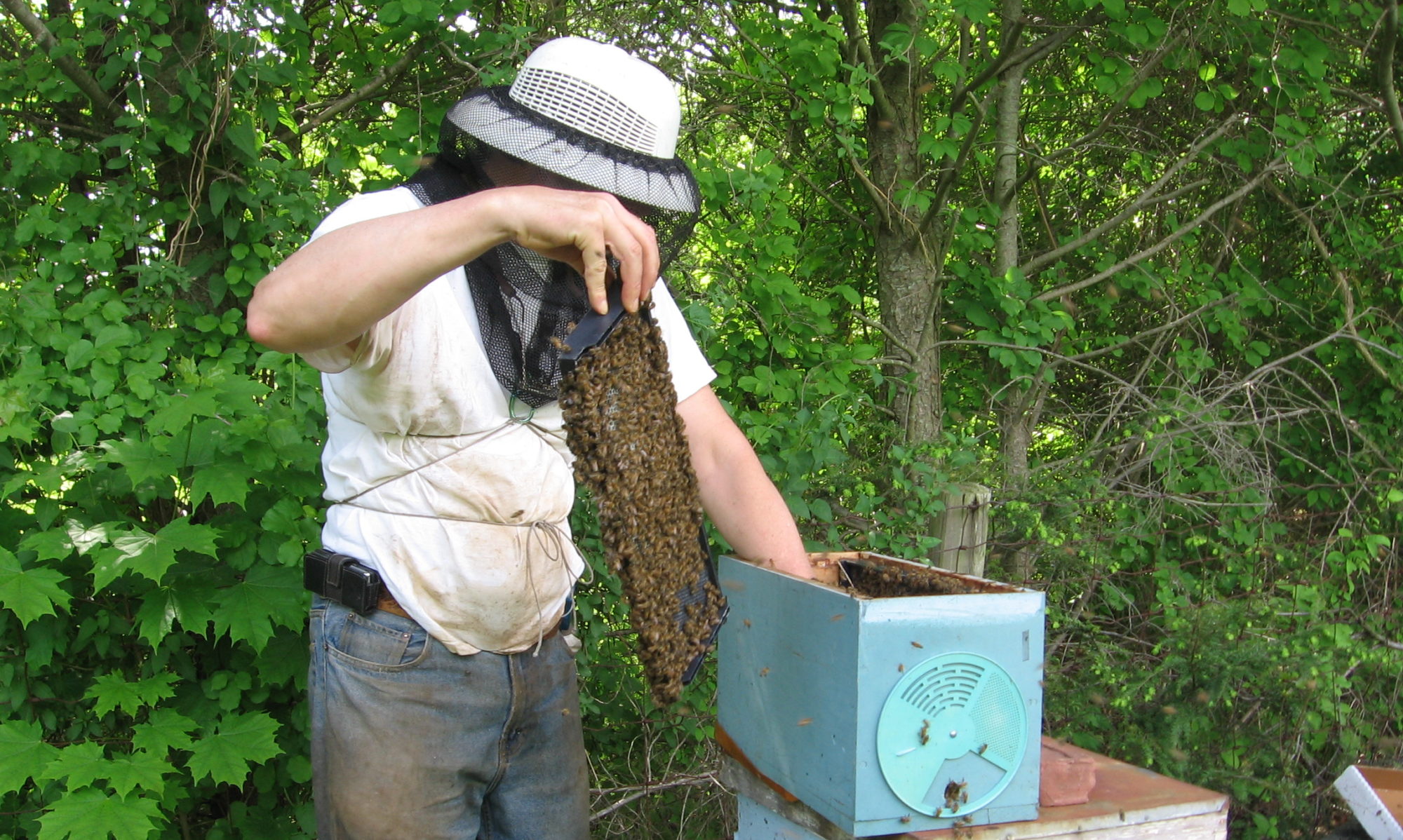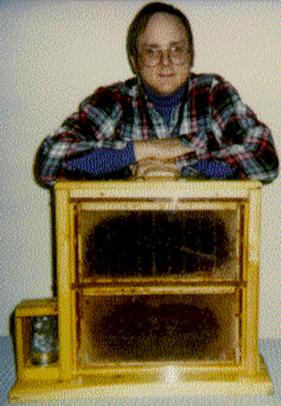We provide a number of different educational services. Briefly, they include: school or scouting presentations on the Honey Bee as a social insect, generally provided to classes or clubs who have just been introduced to the insect; Public talks or dinner speaker on the Honey Bee, its plight and impact of pesticides; Presentations to Beekeeping clubs on a number of subjects relative to keeping Honey Bees; and beekeeping instruction for special classes, either as organized single day crash courses or a series of lectures, and where feasible, bee yard inspections.
Schools or Scouting Educational Talks
I have regularly been included in the insect educational process in schools as a low-cost field trip on Honey Bees as social insects after the study of Insects in general. In season, from April through October, I can bring an Observation Hive with me, containing approximately 5000 honey bees including a marked queen. This is generally a presentation entitled “Our Friend the Honey Bee” and can be geared to students from Pre-K through adulthood. It is adjusted in length according to the schedule available. Pre-K talks are generally 20 -40 minutes including some close-up viewing of the observation hive and questions. As the audience gets older, the presentation can be more detailed and longer. This presentation is often given to Scout Troops or camps as a fun and educational talk. Take a look at my presentation brochure.
.
Public or Dinner Speaker
I have given the talk “Our Friend the Honey Bee” to adults in public or social clubs. I would normally add in information on the current problems with keeping Honey Bees alive. these talks are often extended by audience desire until the leader has to terminate due to time constraints.
Bee Club Guest Educational Speaker
I have a number of presentations developed for and given to the beekeeping community. These talks focus on one aspect of beekeeping and are normally geared for a one-hour talk but they can be adjusted according to time allotted. Available presentations include:
Introduction to Beekeeping – Covers the honey bee family, races of bees, their home, equipment you will need, where to keep them, cost of starting up and problems currently existing with keeping bees.
Honey Bees – Races, Breeds and Sources – Greater detail to the races of honey bees in use today and some of the hybrids developed for special purposes.
Sustainable Apiary Management – What do you need to do to be prepared for the complexities that arise in beekeeping so that you can maximize return while minimizing costs. It is easy for beekeeping to take over your life. How can you manage its impact? What do you need to plan for in beekeeping?
Queen Production – From 1 to 1000 – So it is time to replace that queen that has performed great, or the one that has the nastiest daughters in the world. What can you do to raise your own and still have a good queen. It has been said that a well raised queen from mediocre stock will beat out the poorly raised queen from great stock.
Nucs, Whether Insurance, Growth, or Sale – Every beekeeper should establish the habit of producing a nuc or two every year. They then have a banked queen should they need it or the whole nuc to boost a failed hive. How can you do this? What can they be used for? They can be wintered and used to replace your winter losses or sold to your neighbor who didn’t take this advice.
Honey Bee Diseases – You are the bee’s first level of defense against diseases but you need to know how to identify and how to treat. This program helps you become aware of the threats against your bees.
Honey Show Entry Preparation (short – <20 min) – The local honey show is coming up. You would like to see how your honey compares to others. It sure would be nice to have some bragging rights! How is honey or wax judged? How to prepare your honey or wax for the competition so that it is not down graded due to your errors in preparation.
Record Keeping and Learning or Things I Should Have Done! – If you do not learn from your mistakes, you are bound to repeat them. You need to keep some records but which ones do you need to keep? How accurately do you need to keep them? How should you keep them? What are you going to do with them once you have them?
What Bees See – Did you ever wonder what bees see through those compound eyes? How do we know? What does it matter to you as a beekeeper?
Water, Colony Needs and Uses – Your neighbor complains that your bees are hanging out at their pool and drowning. What are they doing there? What do they need water for at this time of the year? How much water do they need?
Beekeeping Classes
I have been an Eastern Apiculture Society Certified Master Beekeeper since 1995 and have taught a number of classes since that time. I offer Novice classes for the new beekeeper but a number of beekeepers have found that a repeat after about three to five years of beekeeping reminds them of details that they had forgotten. I have also taught a series of classes for the beekeeper with at least five years of experience who wants to push their knowledge further, possibly in anticipation of going for Master Beekeeper certification. these classes are described in more detail in the linked web page.

